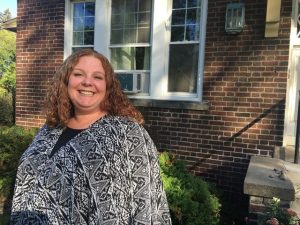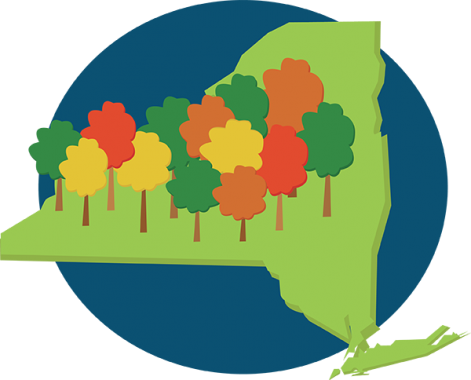Sarah Lee reflects on her sobriety whenever she walks by a corner room on the second floor of the Jennifer House in Rochester.
She took her first step toward sobriety while staying in the yellow room at the house run by Spiritus Christi Prison Outreach. The house is a short-term residence for women who are often battling addiction and re-entering society after a stint in jail.
“When I first came to the Jennifer House, I was given a choice,” she said. “I made the choice to be sober. For the first time in a while, I had made the right choice.”
Sarah kept making the “right choices.” Today, she’s still at the house, but in a completely different role. Today Sarah is the director of the Jennifer House. It’s a role that she said is both humbling and surreal given how far she’s come since her 52-day stay there in 2008.

Sarah Lee
From Addict to Leader
Sarah stayed sober, graduated from the Jennifer House and moved into supportive housing. She went back to school, earning her associate’s and bachelor’s degrees.
“I never envisioned that I’d be a leader,” said Sarah, who is also in the process of earning her Master of Social Work degree. “It’s a very humbling experience and an honor.”
Sarah said it helps that she can relate to what many of the residents are going through.
“When I say I understand, I understand,” she said.
Straight-A Student Turns to Drugs
For Sarah, the life of an addict started at the age of 14. That’s when the straight-A student took her first drink of alcohol.
“When I had my first drink, I loved it,” Sarah said.
Her drinking led to 11 years of drug use, including marijuana, ecstasy and crack cocaine. She committed crimes, landed in jail a few times and a drug treatment court sent her to the Jennifer House.
Sarah now urges her residents not to forget the person they were while using. Sarah, for example, said she doesn’t hate the version of herself who used to be known on the streets as “snowflake.”
“Snowflake kept me alive, despite all the drugs,” Sarah said. “She was resilient, persevered and somehow survived.”
“But I had to let that person go to become Sarah again,” she added.
You can Have Fun and Be Sober
Sarah’s understanding of how hard it is to break the cycle of addiction helps guide her programming.
The goal of the house’s wellness initiative, for example, is to show the former addicts that they can have fun and be sober.
A grant from Excellus BlueCross BlueShield has helped Sarah fund this program, which is run by a volunteer, part-time recreation therapist. The wellness initiative includes exercise programs at local fitness centers and outings to try white water rafting, horseback riding, bowling and yoga.

Residents of the Jennifer House on a white water rafting trip.
The activities, Sarah said, help residents fight their cravings, decrease stress and increase self-discipline and confidence – all skills essential to recovery. About 80 percent of residents use what they learn from the program to develop new, healthy habits, she added.
Exercise, after all, has been hailed as one piece of the puzzle when it comes to helping people overcome addiction.
Sarah also links each outing to the residents’ own struggles to be sober.
The residents’ battles with the rapids while white water rafting, for example, is like their fight for recovery. The rapids are tough, but you still have to fight through them.
“Life feels like that when you’re in recovery, but you can get through it,” Sarah said.
- Sepsis: A deadly condition that happens fast - January 17, 2020
- Knocking on doors. Looking under bridges. How we find hard-to-reach members. - March 25, 2019
- Flavorful Escarole and Pastina Soup - December 1, 2018


